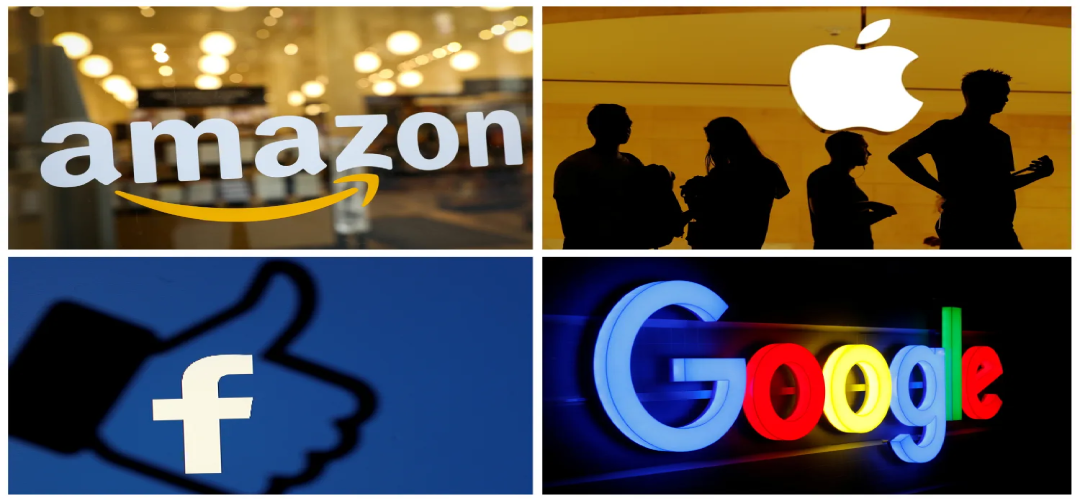Is Big Tech in Legal Trouble?
February 4, 2024 | Expert Insights

Apple is the latest Big Tech company to be sued for breaching antitrust laws. After a drawn-out investigation, the United States Department of Justice (DOJ) is set to sue Apple for allegedly imposing hardware and software restrictions that impede rival companies' ability to compete with iPads and iPhones. If the filing proceeds, it will mean that each of the “big four” tech companies - Meta, Google, Amazon, and Apple - will have faced lawsuits in recent years for monopolistic practices.
Governments across the world have taken measures to curb anti-competitive practices by Big Tech, or are preparing to do so, as they reckon with a rapidly expanding digital market. Yet, even lawsuits may not suffice to restrict these digital behemoths.
Background
Antitrust laws or competition laws are domestic laws that prohibit business practices that enable a company to monopolise the market, stifle competition, and maintain market dominance.
Technology products like apps and gadgets have faced sizable scrutiny with calls for regulating the advancement and use of emerging technologies like artificial intelligence.
However, the business practices of tech titans have faded into the background. Significantly, the recent anti-competitive lawsuits against the big four are based on the companies’ practices and not their products alone.
The contention is that these companies are taking over the markets they operate in, enabling them to charge higher prices for the goods and services they offer. Not only does this mean less choice for consumers but it also means that these companies have less pressure to innovate or improve their products and services.

Analysis
A recent complaint against Google could be one of the most significant anti-trust lawsuits against a Big Tech company since the landmark case against Microsoft around 25 years back. If Google prevails, not only will it be able to continue with its business model, but it could also set a positive precedent for other tech companies facing lawsuits. The DOJ complaint, filed in 2020, hinges on agreements the company made to ensure its search engine features prominently, which allegedly shut out competitors. These include a deal with Apple that makes Google’s search engine the default option on Apple devices. Google also signed a deal with smartphone producers and mobile telecom firms, ensuring that its Android operating system and search engine are foremost.
Google already owes €8.25 billion or $13.6 billion worth of fines for breaching the European Union’s antitrust laws over the last decade. The grounds range from unfair dominance of the Android operating system market to abusive practices in its online advertising that disadvantage competitors. Online advertising comprises 80% of Google’s income. Google continues to appeal the fines and is yet to pay them.
Meanwhile, social media giant Meta, the parent company of Facebook, has been accused of eliminating competition by buying up its rivals. An ongoing case filed by the US Federal Trade Commission and more than 40 US states in 2021 targets Meta’s purchase of Instagram and WhatsApp, alleging it eliminated competition that could potentially challenge its dominance.
Amazon, the emperor of online retail, faces a lawsuit for using allegedly anticompetitive and unfair tactics to maintain its market dominance. The suit, filed in 2023 by the Federal Trade Commission and 17 states, targets Amazon’s misusing its immense industry clout to edge out competitors. This includes coercing sellers to offer the lowest price on Amazon than anywhere else and compelling third-party sellers to use its costly delivery and fulfilment system. Critics and the complaint point out that Amazon’s monopoly enables it to raise prices and restrict consumer choice.
Anti-competition action against Big Tech is spreading beyond the US and Europe. The Competition Commission of India (CCI) ruled that Alphabet, the parent company of Google, abused its dominant position in the smartphone software market with its ubiquitous Android operating system. On top of a Rs. 13.4 billion fine, it ordered it to stop pre-installing popular Google apps like YouTube and Google Maps. Around 96% of Indians use Google’s Android operating system on their smartphones, compared to a meagre 3.1% that use its main competitor Apple iOS.
However, lawsuits seem to have limited success - the lengthy legal process risks the technology involved becoming obsolete. More importantly, existing and potential competitors could be driven out of the market in that time and the tech titans could tighten their grip and become more strongly entrenched.
Assessment
- The seeds have been sown for Big Tech’s legal reckoning. However, as digital industries rapidly progress to new frontiers, the reckoning may come too late and regulation will have to keep up.
- With suits and appeals running into years, governments are looking at more effective ways to regulate tech titans. Anti-competition legislation could unroll new rules that apply specifically to Big Tech and focus on preventing them from unfairly using their market clout. A specialized regulator to focus on major tech firms is another option.








Comments